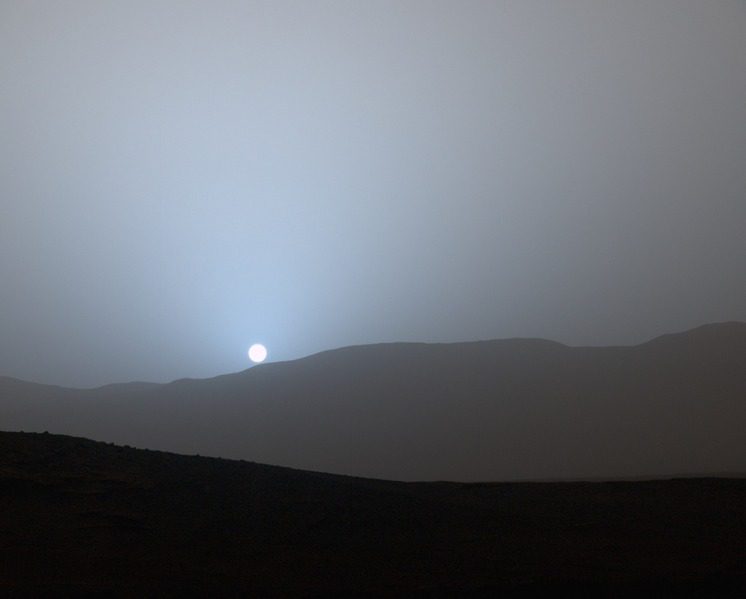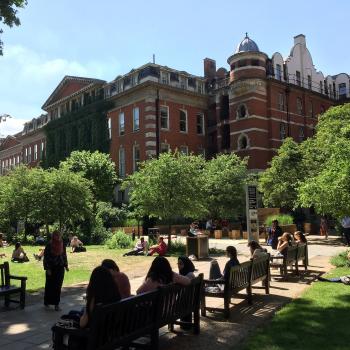
(Wikimedia Commons public domain image)
Stephen T. Davis is currently Russell K. Pitzer Professor of Philosophy, Emeritus, at Claremont McKenna College in California. Some time ago, I read his book After We Die: Theology, Philosophy, and the Question of Life after Death (Waco: Baylor University Press, 2015). Now, I’m beginning to extract notes from it:
Professor Davis asks “What is an ultimate question?” and he supplies two criteria for identifying such questions.
The first of these criteria is simply that human beings keep asking the question and they deeply want an answer to it. So, to begin with a negative example, “Was Julius Caesar right- or left-handed?” is a question that almost nobody asks or cares about. It is clearly not an “ultimate question.”
But what about a question like “Is there life on Mars?” Lots of people have wondered about this. So is it an “ultimate question”?
Probably not, and for at least two reasons: First, the topic of life on Mars hasn’t always been a focus of great curiosity, let alone of deep and consuming concern. Ancient and medieval people rarely if ever asked about it. Maybe only in the past hundred or so years have many posed the question. Second, whether or not there is life on Mars is a question that can, in principle, and soon enough in practice, be pretty definitively answered by ordinary scientific methods.
“An ultimate question,” says Davis, “must . . . be a question that cannot be answered by the scientific method. . . . We cannot answer such questions by doing an experiment in a lab, by observing a phenomenon, by measuring an effect, by taking a poll, or by crunching numbers.”
What are some ultimate questions? They are, in effect, the questions that make up much of the subject matter of philosophy. Does God exist? Do human beings have immaterial minds or souls? Are all human decisions and actions causally determined, or are we sometimes free to do one thing or another given the same antecedent conditions? What is knowledge and how does it differ from other cognitive states like believing or having an opinion? How can we know what is morally right and what is morally wrong? There is no experiment that we can perform in a chemistry lab or a physics lab to answer these questions. But notice that one other sort of question definitely belongs here too: Does my death end my existence, or will there be life and experience for me after my death? (2-3)












